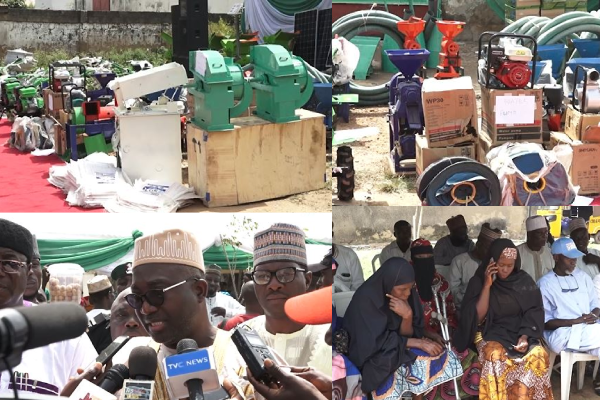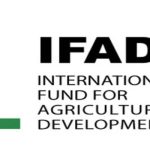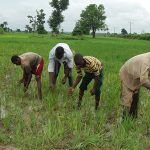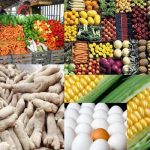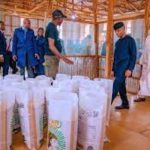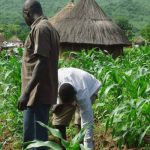The value chain development programme has flagged off the distribution of production and processing equipment worth 80 million naira to farmers across 8 local government councils in Niger state.
The national coordinator of the programme, Fatima Aliyu said the goal is to boost to rice and agriculture production to mitigate against food shortage.
Agriculture is one sector that was greatly hit by the floods that swept through 21 local government councils in Niger state.
The state is one of the largest producers of rice in Nigeria.
[wonderplugin_video iframe=”https://youtu.be/4l_NF0xEaeQ” lightbox=0 lightboxsize=1 lightboxwidth=960 lightboxheight=540 autoopen=0 autoopendelay=0 autoclose=0 lightboxtitle=”” lightboxgroup=”” lightboxshownavigation=0 showimage=”” lightboxoptions=”” videowidth=600 videoheight=400 keepaspectratio=1 autoplay=0 loop=0 videocss=”position:relative;display:block;background-color:#000;overflow:hidden;max-width:100%;margin:0 auto;” playbutton=”https://www.tvcnews.tv/wp-content/plugins/wonderplugin-video-embed/engine/playvideo-64-64-0.png”]
Local reports by the state emergency agency says that over 8,000 farmlands and houses were lost.
This figure is putting a looming food shortage in view coupled with the already existing challenge caused by banditry attacks that has kept farmers from their farms for months.
The federal government of Nigeria through the value chain development programme assisted by The international fund for agricultural development is providing production and processing equipment to some farmers in 8 local government councils in Niger state.
This is to support rice and cassava production.
The implements include Knapsack sprayers, Thresher, Power tillers, Rice destoners, weighing balance, Communal fryers.
The Niger state governor was represented by his deputy Ahmed Ketso at the flag off of the distribution exercise.
Physically challenged persons were not left out as some were were provided grinding machines to contribute to the chain.
The programme director disclosed that the implements cost about 80 million naira and the benefiting farmers are paying only 30 percent of the cost.

